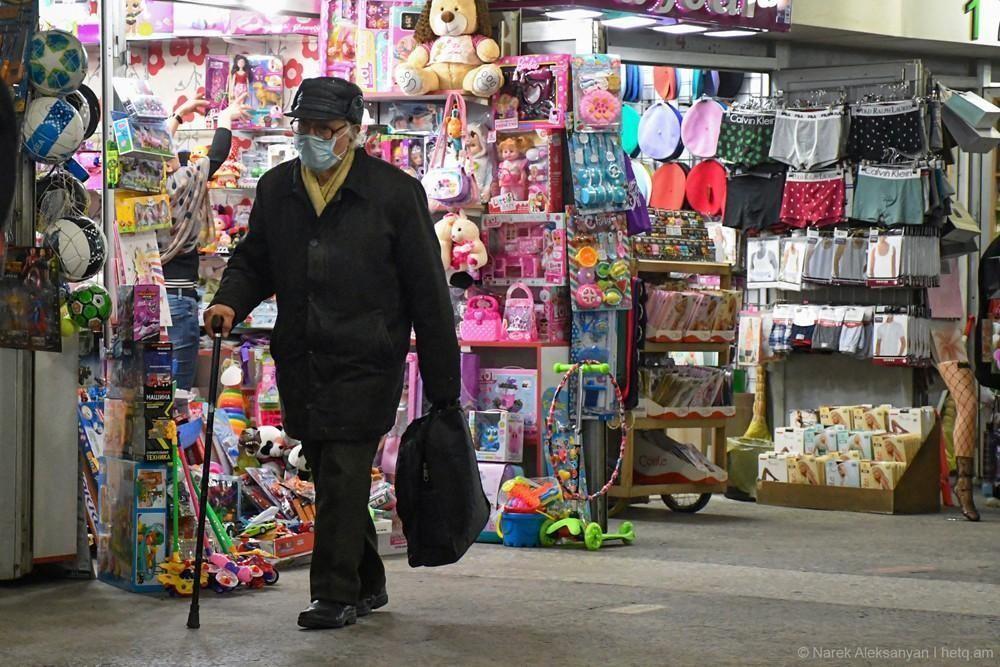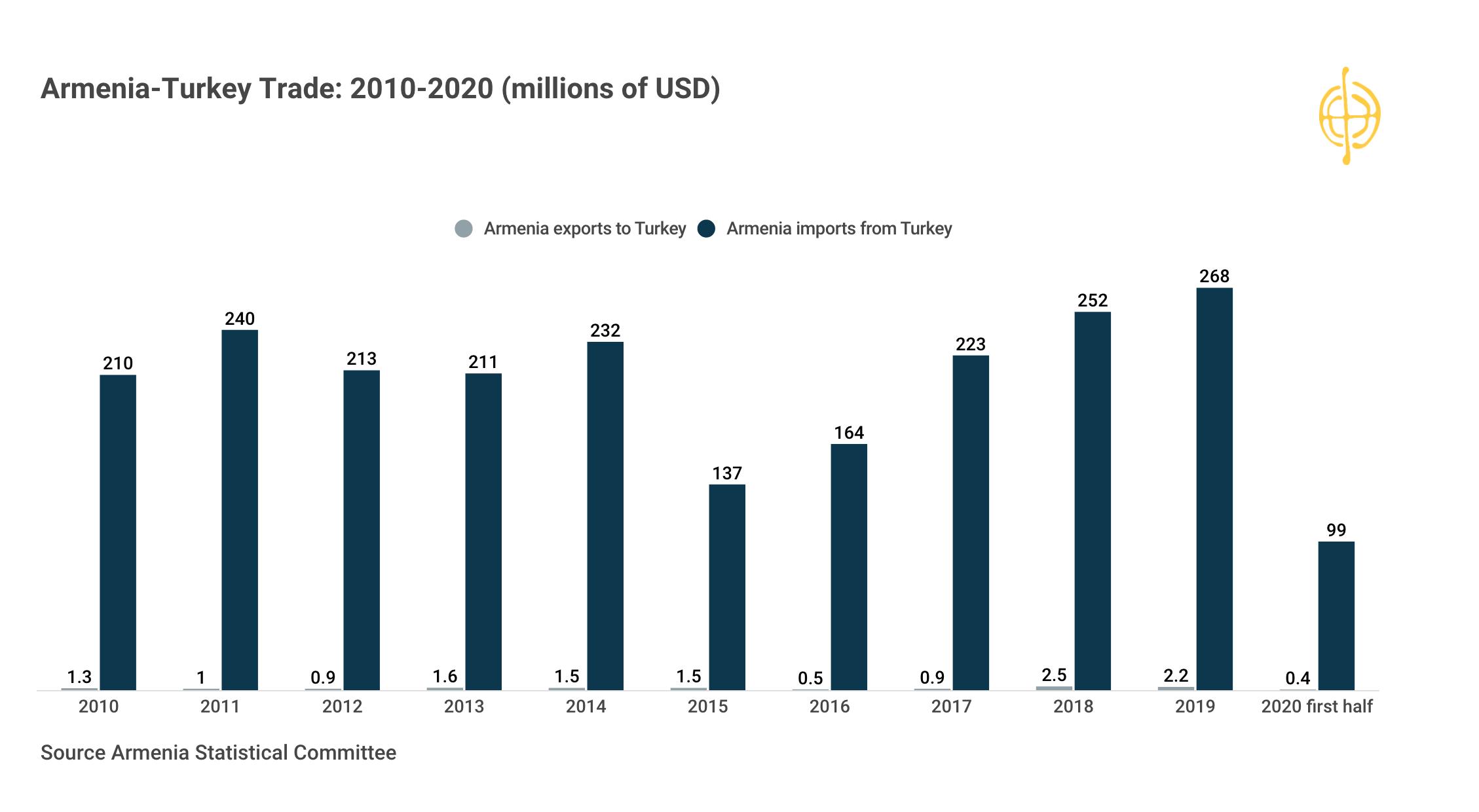
Purging Armenia of Turkish Goods: The Prospects and Pitfalls of a Nationwide Boycott
Calls for a boycott of Turkish goods have intensified in Armenia since the resumption of hostilities in Artsakh.
Turkish-made products are displayed on social networks and people are being urged to refrain from buying them while shopping and to choose locally made alternatives if available. A petition was also organized to boycott Turkish goods.
Several supermarkets and shops have already announced that they will stop selling Turkish goods.
There are frequent calls to renounce Turkish goods in Armenia, but the issue has come to the fore since September 27 when Azerbaijani forces attacked Artsakh.
Armenians citizens boycotting Turkish goods want to hit Turkey in the pocketbook for Ankara’s support of Baku.
Every time this topic surfaces in the public arena, the issue of developing local production and gradually giving up Turkish goods without harming business and consumers is raised.
Many stores in Yerevan are awash with Turkish made goods, ranging from clothes to household goods.
Armenia’s trade relationship with Turkey mainly as importer
Armenia imports much more from Turkey than it exports.
According to the Statistical Committee of Armenia, in the first half of this year, Armenia exported $374,000 worth of goods to Turkey, 72.3% less than in the same period last year.
In the same six months, Armenia imported about $99 million worth of goods from Turkey, which is 14.5% less than in the first half of last year.
Turkey's share in Armenia's exports in the first half of this year is 0%, and in imports - 4.9%.
Armenia imports more than 700 items from Turkey
An analysis of Armenian Customs Service data shows that Armenia imports more than 700 diversified items from Turkey, ranging from clothes, shoes, oil products to household goods, construction materials, etc. Both finished products and raw materials for various local products are imported.
In the first half of this year, the top ten products imported from Turkey to Armenia were knitwear, citrus fruits, petroleum products, fabric wallpaper, detergents, wood-fiber boards, shoe-making products, aluminum calipers.
Armenia's share of Turkey's exports is 0.1%
Comparing the official statistics of Turkey, we see that in recent years the share of Armenia in Turkey's exports has ranged from 0.1-0.15%. In other words, Armenia is not a primary export market for Turkey.
Turkish goods should be phased out without harming the interests of Armenian business and consumers
The idea of "cleansing" the Armenian market of Turkish goods should be implemented gradually, while developing the production of such goods in Armenia.
Moreover, this may take several years, but if it is decided to avoid the consumption of Turkish products the process should start today. Experts suggest different ways to do this.
Emil Stepanyan, co-founder of the Export Armenia Association of Experts, says that Armenian businesses bring ready-made goods and raw materials from Turkey only because they do not have more convenient alternatives in terms of price and quality.
He emphasizes that the process of giving up Turkish goods can take several years and must be implemented with a clear program. Here, the state must be ready to support businesses that may suffer because of the plan to reject Turkish ready-made goods and raw materials.
The process should start with ready-made clothes and shoes, including the opening foreign brand representations here. Raw materials must be left for a later date since there is no alternative yet for Turkish raw materials for local production.
Stepanyan says that while the state can increase the customs duties on imports of goods from Turkey, it must support the importers through various grants or other programs, so that the increase of customs duties will not be a big blow for them.
"If we had started this process five or six years ago, there would be less Turkish goods in Armenia today. It is true that today Turkey’s share in our imports is about 5%, but if we look at individual products some numbers shoot up to 80%. Take oranges for example. We should have started this process early, with the gradual increase of customs duties during the import from Turkey to Armenia. Now the rules for calculating customs duties on clothing imports have changed, which implies higher customs duties. As a result of these changes, eight billion drams will enter the budget of Armenia instead of four billion drams. I suggested directing that additional four billion drams to the alleviation of social tension. Give it to businesses that will suffer from tariff increases through various programs and grants," Stepanyan told Hetq.
He emphasizes that, at the same time, local production should be encouraged and the dependence of the Armenian market on Turkish goods should be eliminated.
It is time for Armenia to take steps before Turkey does.
"For example, both at the state level and internally, Turkey can immediately ban the export of any product to Armenia," says the expert.
The process of tightening trade relations with Turkey may be hindered by Armenia's membership in the World Trade Organization, given that member states have certain obligations. However, experts are convinced that bilateral solutions can be found if desired.
Economist Haykaz Fanyan, who heads the ACSES Analytical Center in Yerevan, touched upon this topic on his Facebook page. He argues that there is an urgent need to diversify Armenia’s raw material base of clothing production and the development of local production capacities.
In fact, he says there is a strategic window in the textile sector and that it is possible to start a new business to successfully serve the upper reaches of the textile industry.
"I think that the representatives of the clothing industry (vertically - downward integration) can cooperate, start a joint business, which will reduce the sales risks, curb the increase in the cost of raw materials as much as possible (presumably the cost is lower due to the scale effect of Turkish manufacturers)," Fanyan wrote.
 Videos
Videos Photos
Photos

Comments (3)
Write a comment